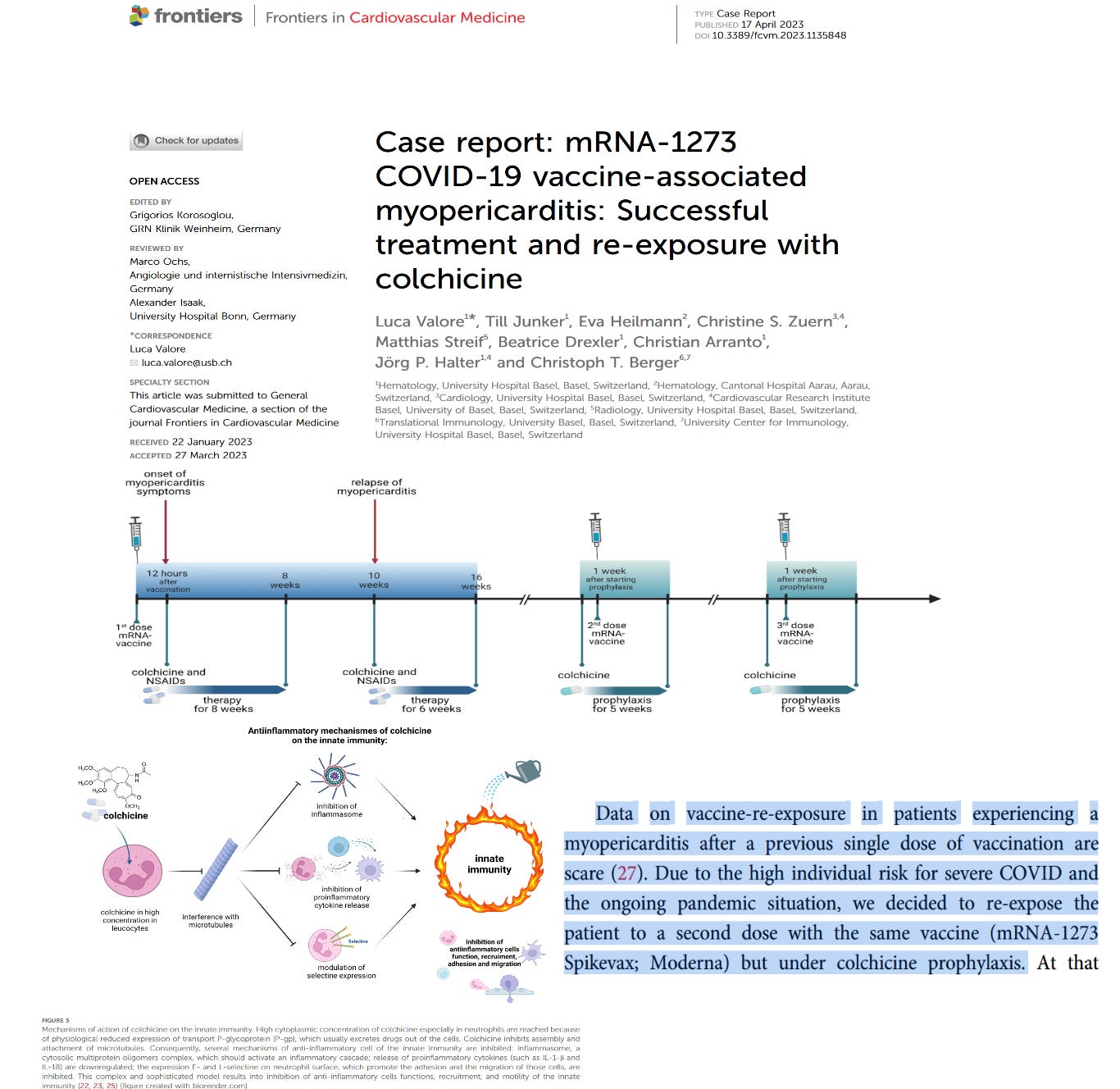Colchicine in the Treatment and Prevention of COVID-19 Vaccine Myopericarditis
Risky Re-Challenge with Additional Moderna Shots in a 70 Year Old Man with Myopericarditis
By Peter A. McCullough, MD, MPH
Oral generic colchicine has been a mainstay in the McCullough Protocol for the acute treatment of COVID-19 respiratory illness. It is also standard of care in the treatment of acute gout and in the management of myopericarditis long before the pandemic.
I prescribe this drug almost everyday in my clinical practice for patients with post-acute-sequalae after SARS-CoV-2 infection and COVID-19 vaccination. Colchicine has its effects via its anti-inflammatory properties. It disrupts cytoskeletal functions by inhibiting beta-tubulin polymerization into microtubules, preventing activation, degranulation, and migration of neutrophils associated with mediating myocardial and pericardial inflammation. Colchicine blocks metaphase due to two separate anti-mitotic effects; disruption of mitotic spindle formation and disruption of the sol-gel formation. The toxic effects of colchicine are related to this anti-mitotic activity within proliferating tissue such as skin, hair, and bone marrow.[3][4]
In patients with COVID-19 vaccine myopericarditis, I NEVER recommend additional injections of mRNA because of the risk of causing heart failure or cardiac arrest. Valore et al, recently challenged the preventive effect of colchicine in a patient with very serious Moderna mRNA myopericarditis.

Keep reading with a 7-day free trial
Subscribe to FOCAL POINTS (Courageous Discourse) to keep reading this post and get 7 days of free access to the full post archives.




